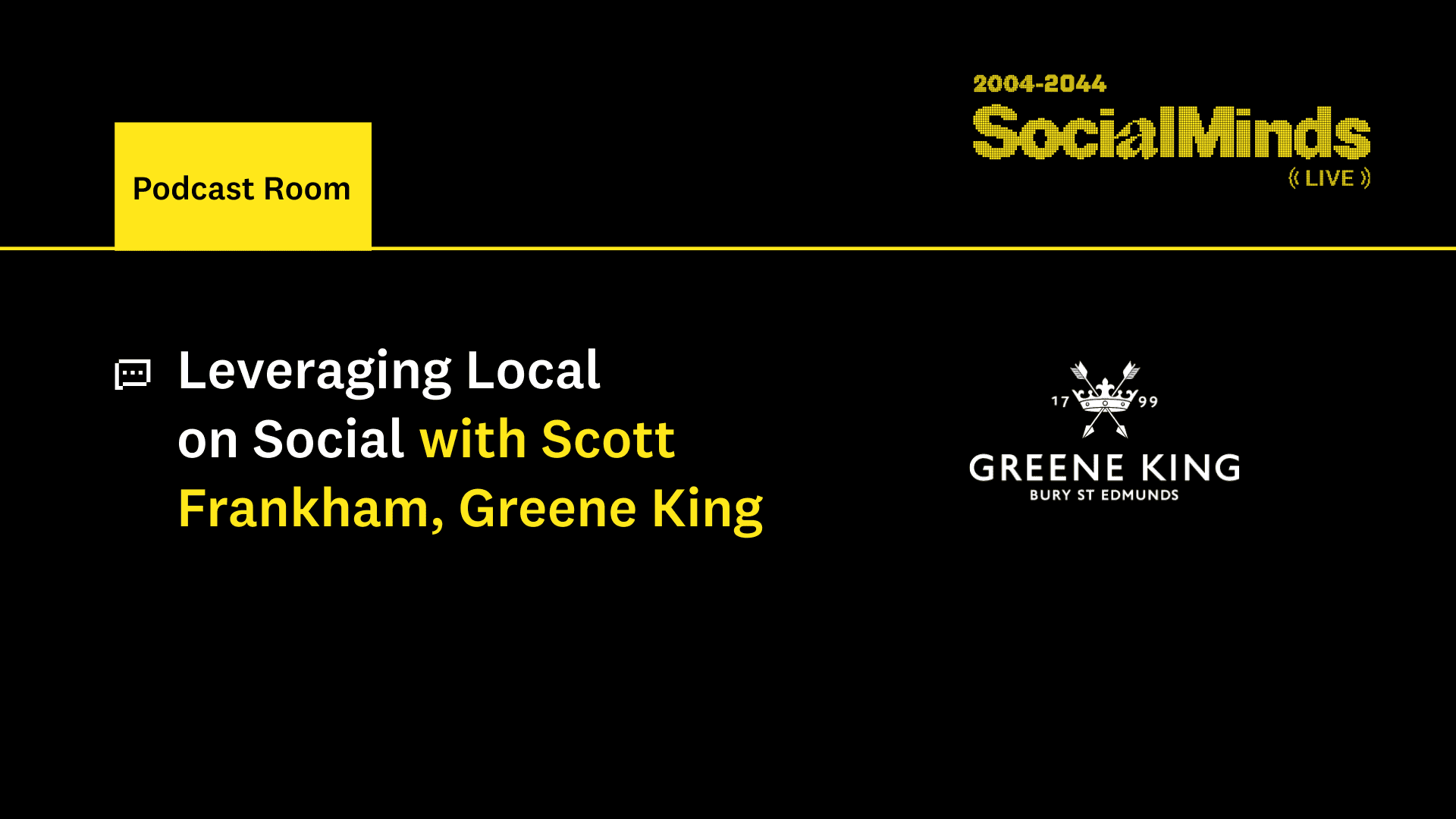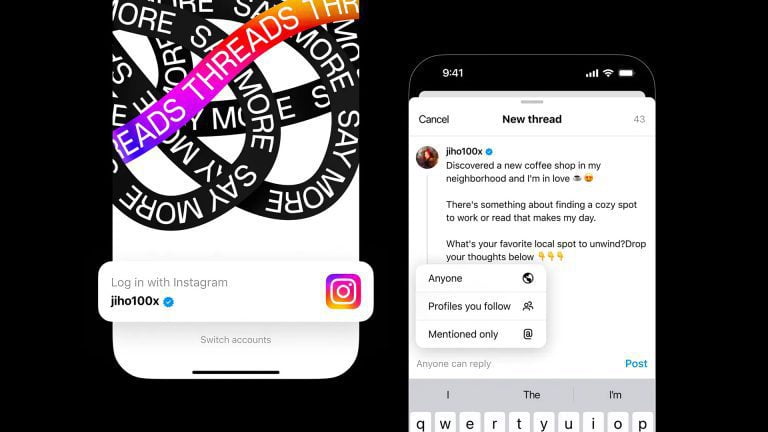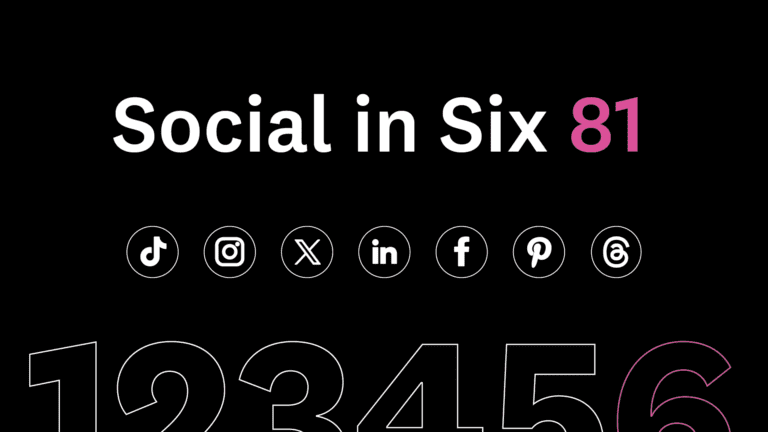How to leverage local on social with Greene King
Real people. Real stories. Real moments. Locally created social content can connect with your customers more than generic brand content ever could.
At least, that’s the thinking behind Greene King’s social strategy. Leveraging its local teams was a mammoth task for the pub chain, which owns over 2,000 pubs and multiple sub-brands across the country. But with over five million fans across its social channels, the UK’s biggest pub retailer and brewer is clearly doing something right.
So at SocialMinds LIVE: Future Casting Social’s Next 20, its head of social media Scott Frankham joined our first ever live podcast to tell over 100 marketers how his team balances global brand building with leveraging its local teams on social.
First and foremost, Scott acknowledges that content creation is changing. “Gone are the days of social media managers creating all the content,” he explains. “Brand social, or national messaging, and local messaging are two sides of the same coin. For us, at the local level, it’s all about making our pub famous in a local setting. At the national level, it’s about promoting the overall brand. Central responsibilities like product promotion can still be created by a centralised department.”
So customers want more local content from venues and service providers. In Greene King’s case, customers want to see a pub’s history, the cracking weekly quiz, a beer garden perfect for the big game and fantastic local scenery. In other words, they need to be sold on the venue’s unique identity before they decide to visit.
Scott’s secret weapon? Turn your local employees into creators. When empowered with the right training and tools, employees can deliver content that resonates more with your target audience. “Employees bring a different lens to your brand or product. A lens with more of a human touch, and a unique sense of place or service that a national social media manager can’t create.”
“It’s all about empowering your employees to create content that’s more relevant to their unique place of work and relevant for their own unique brand. But the content can’t just be ‘nice’. There needs to be a strategy, and a framework for people to follow.”
To stop local social media managers running wild posting every trending meme they can find, have a strategy in place from the outset. “If you’re going to develop a framework for social content, it needs to be easy to remember. Your on-the-ground teams will already have busy day-to-day roles. Social creation needs to be as accessible as possible,” says Scott.
One challenge you’re likely to face is internal buy-in. Stakeholders might not understand why your social channel is worth the investment at first, so Scott suggests letting the data do the talking. See every person in your audience as a potential customer. All it takes to seal the deal is getting the local messaging right.
In a world where a single employee or ‘admin’ has made Duolingo and Ryanair two of the most talked about brands on TikTok, Scott believes an adeptness for creating social content will only become even more crucial as a hiring factor for future managers. As for your existing employees, participation in employee-generated content works well as an incentive to build their profiles and upskill – whether that’s interviews or short-form video editing.
Sure, they still need all the skills you’d traditionally associate with the role. But if your branch or product manager has the added bonus of being on the pulse of social, they’ll no doubt get more customers through the door with a viral TikTok or two. And isn’t that what great marketing is all about?
Learn more from the UK’s leading pub retailer and brewer Greene King as Scott Frankham joined SocialMinds LIVE for its first ever live podcast session.
Watch the recording now and discover how you can balance global brand building with leveraging local communities on social, including:
- How to empower your employees to be creators
- Why you should produce a framework for success (Hint: You don’t want local teams sharing memes every day)
- What you can do to get buy-in from internal stakeholders





